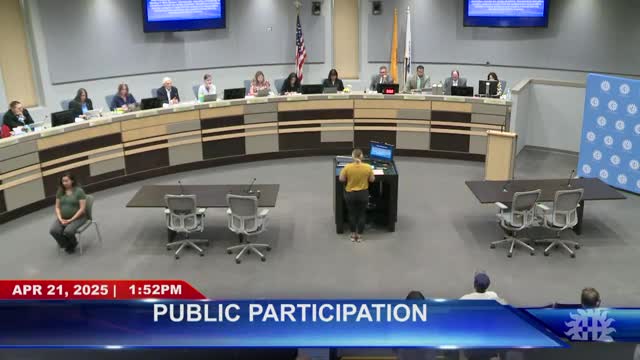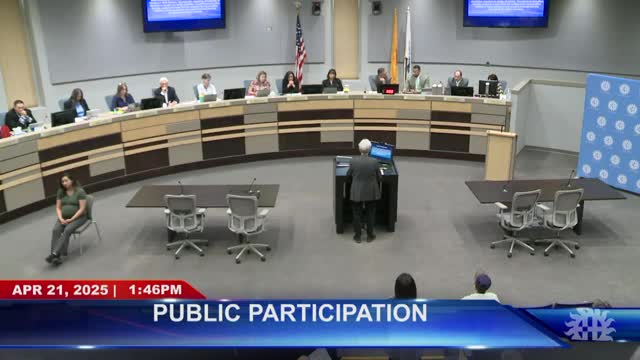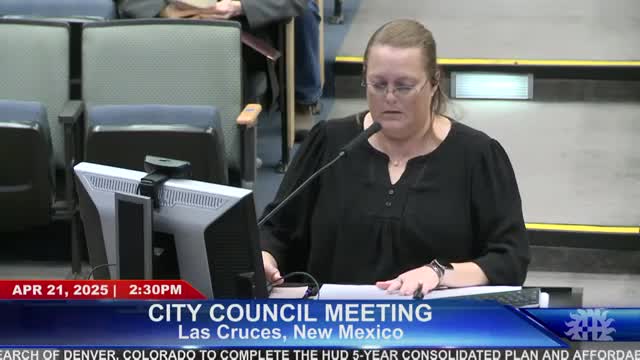Article not found
This article is no longer available. But don't worry—we've gathered other articles that discuss the same topic.

Public speakers press council for stronger responses after Young Park shooting; many voice support for police

Residents tell council Las Cruces Utilities’ lead‑pipe inventory and testing methods leave gaps, call for independent review

